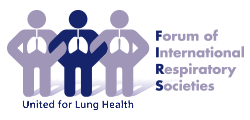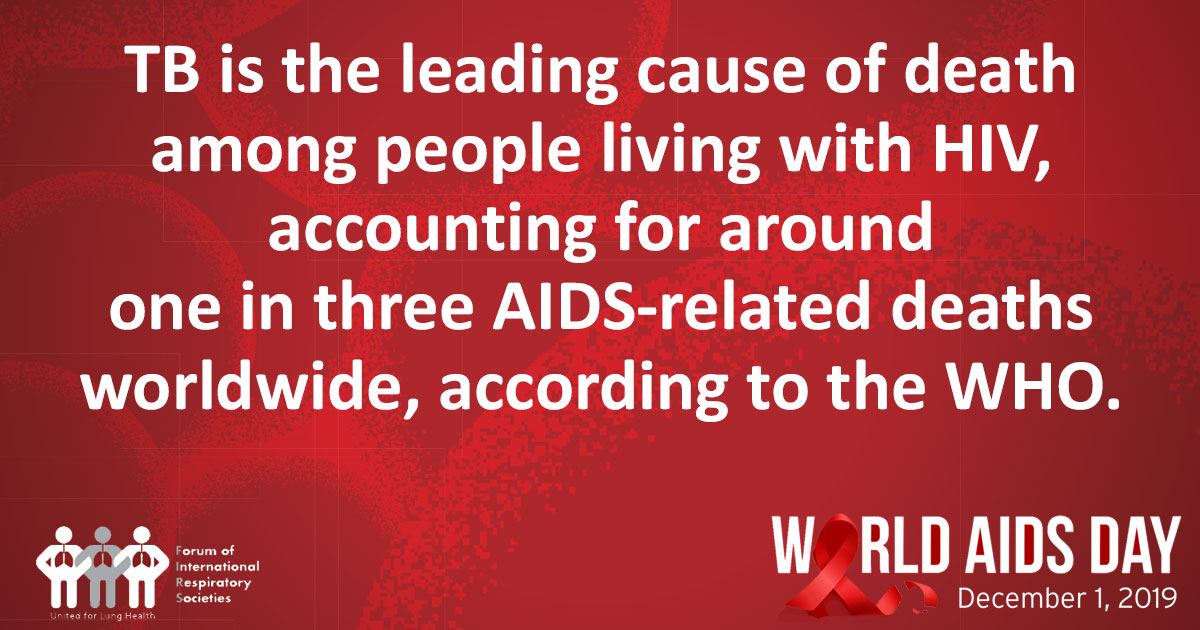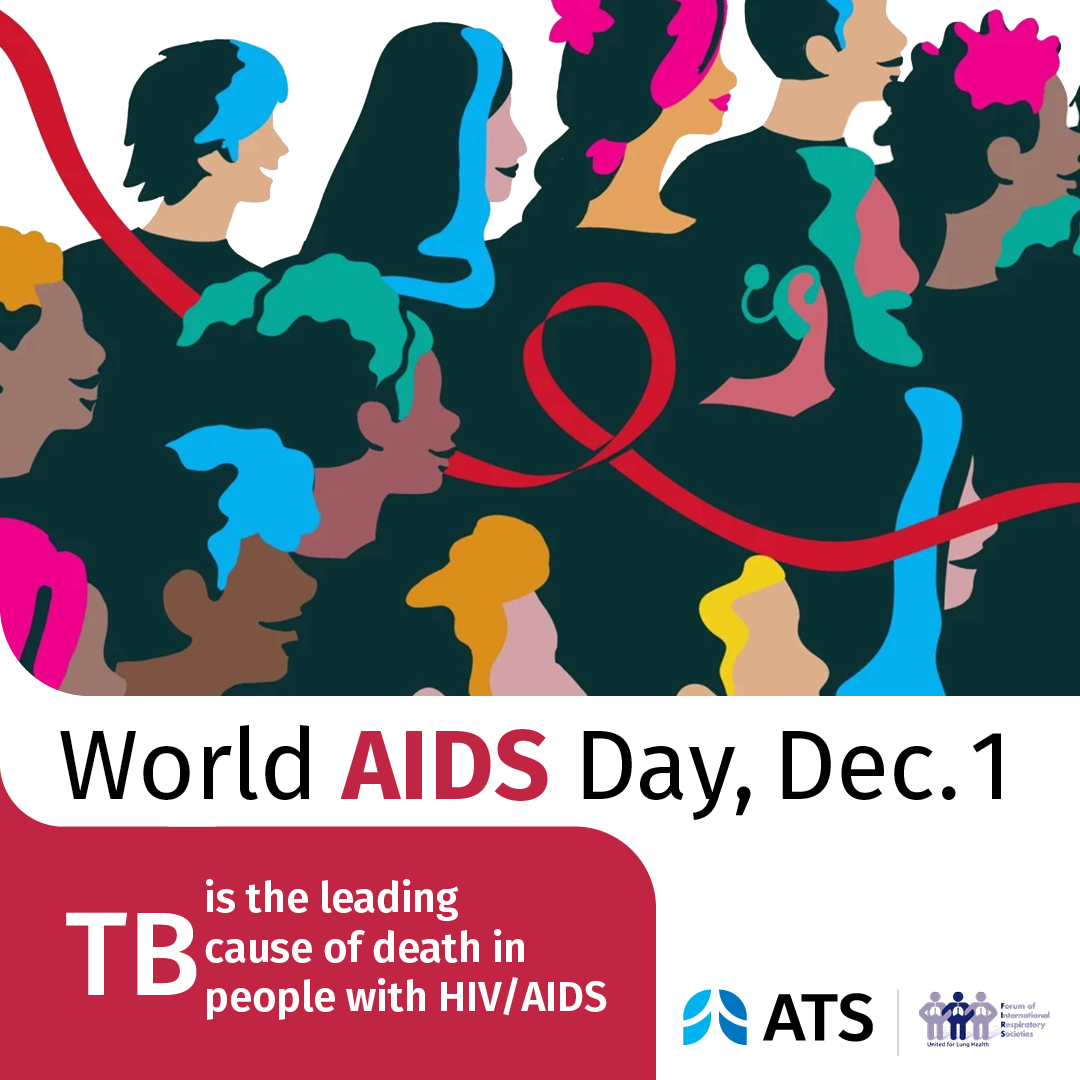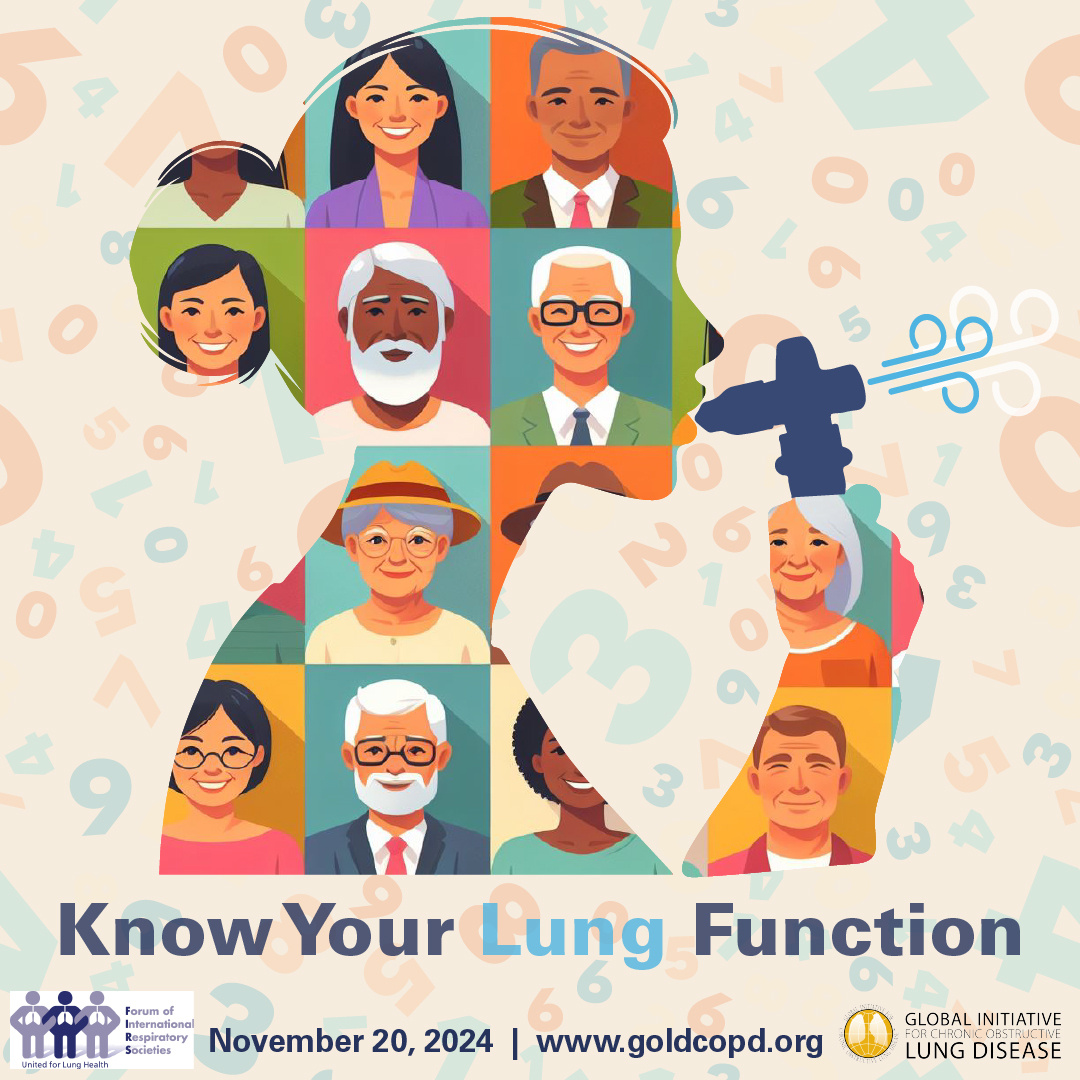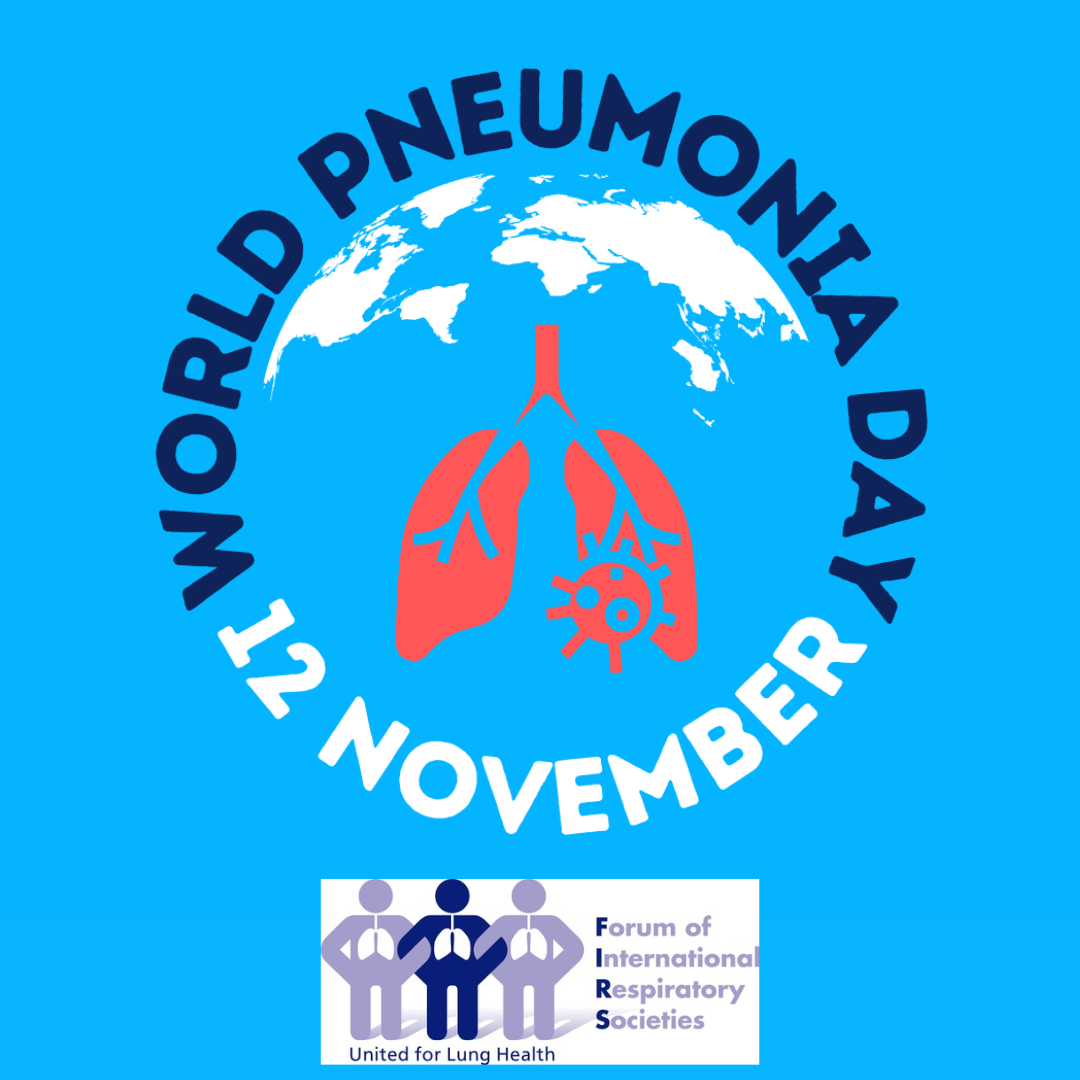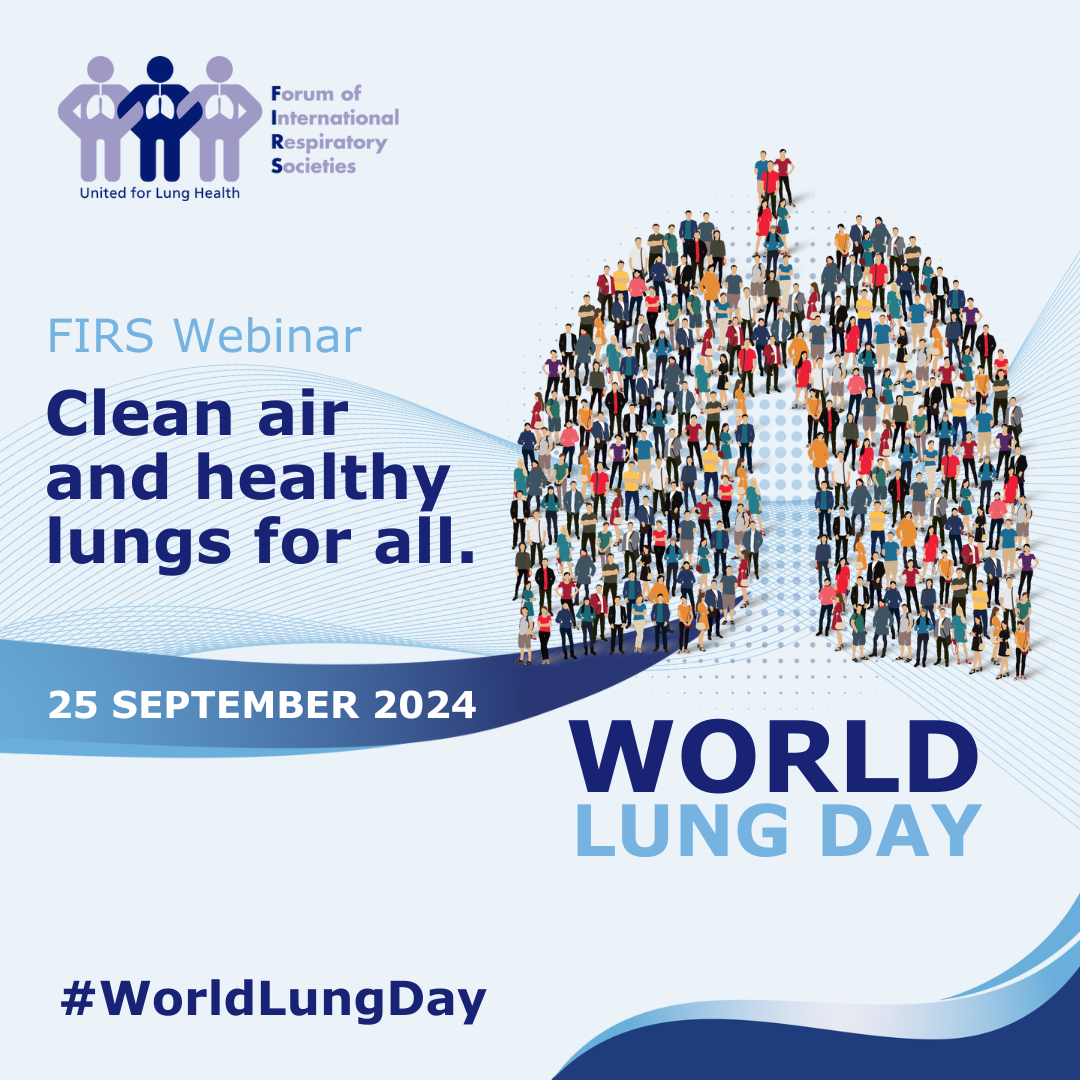1 December 2019—The World Health Organization (WHO) has set a goal of ending the AIDS epidemic by 2030. To achieve that goal the Forum of International Respiratory Societies (FIRS) is calling on governments, health advocates and non-government organisations on World AIDS Day to strengthen their response to AIDS and tuberculosis (TB).
TB is the leading cause of death among those with HIV/AIDS worldwide, accounting for about one in three deaths, according to the 2019 UNAIDS Global update.
“People with latent TB who are HIV positive need TB preventative therapy,” said James Beck, MD, ATSF, President of American Thoracic Society, a FIRS founding member “Studies show that this preventative therapy can reduce the chances of dying from TB and AIDS by around 40 percent.”
In the developing world, TB is often the first sign a person has HIV. Yet, about half of the people living with HIV and tuberculosis are unaware of their co-infection and therefore not receiving care that could prevent serious illness and death, according to WHO.
Shortly after AIDS emerged, it fuelled a global resurgence of TB that continues in many low- and middle-income countries. According to the Centers for Disease Control and Prevention, HIV infection is the strongest risk factor for progressing from latent to active TB.
HIV increases the risk of other infectious respiratory diseases, including pneumocystis jiroveci pneumonia (PCP) and bacterial pneumonia, both of which can be life threatening.
Since the AIDS epidemic began, the WHO estimates that about 75 million people have become infected with HIV and 32 million people have died from AIDS-related illnesses. Today, in Africa alone more than 25 million people are living with HIV.
Education, prevention strategies and new medicines, particularly antiretroviral therapies, have reduced the number of AIDS deaths each year by more than half since their peak globally in 2004.
Still, UNAIDS estimates that in 2018 nearly 40 million people were living with AIDS and about 1.7 million people became newly infected.
FIRS believes a global response to HIV/AIDS can be strengthened by:
- Increasing awareness of the continuing global threat of HIV-related disease and its link to TB and other respiratory diseases.
- Improving the health outcomes of people living with HIV through patient care and research into improved treatments and treatment strategies for both HIV and TB.
- Reducing the incidence and severity of HIV-related disease by strengthening mother-to-child transmission prevention programs and increasing the early use of antiretroviral therapy.
- Improving HIV education in at-risk communities to reduce the incidence of new HIV infections.
- Reducing HIV-related health disparities and inequities.
“The good news is that antiretroviral therapies have turned HIV/AIDS from a death sentence into a chronic disease, and TB is preventable and curable,” Dr. Beck said. “These two facts, along with the millions of lives that we can save, should strengthen our resolve to make sure these medical advances are available to everyone.”
Download World AIDS Day fact sheet.
About the Forum of International Respiratory Societies (FIRS)
The Forum of International Respiratory Societies (FIRS) is an organisation comprised of the world's leading international respiratory societies working together to improve lung health globally: American College of Chest Physicians (CHEST), American Thoracic Society (ATS), Asian Pacific Society of Respirology (APSR), Asociación Latino Americana De Tórax (ALAT), European Respiratory Society (ERS), International Union Against Tuberculosis and Lung Diseases (The Union), Pan African Thoracic Society (PATS), Global Initiative for Asthma (GINA), and the Global Initiative for Chronic Obstructive Lung Disease (GOLD).
The goal of FIRS is to unify and enhance efforts to improve lung health through the combined work of its more than 70,000 members globally.
